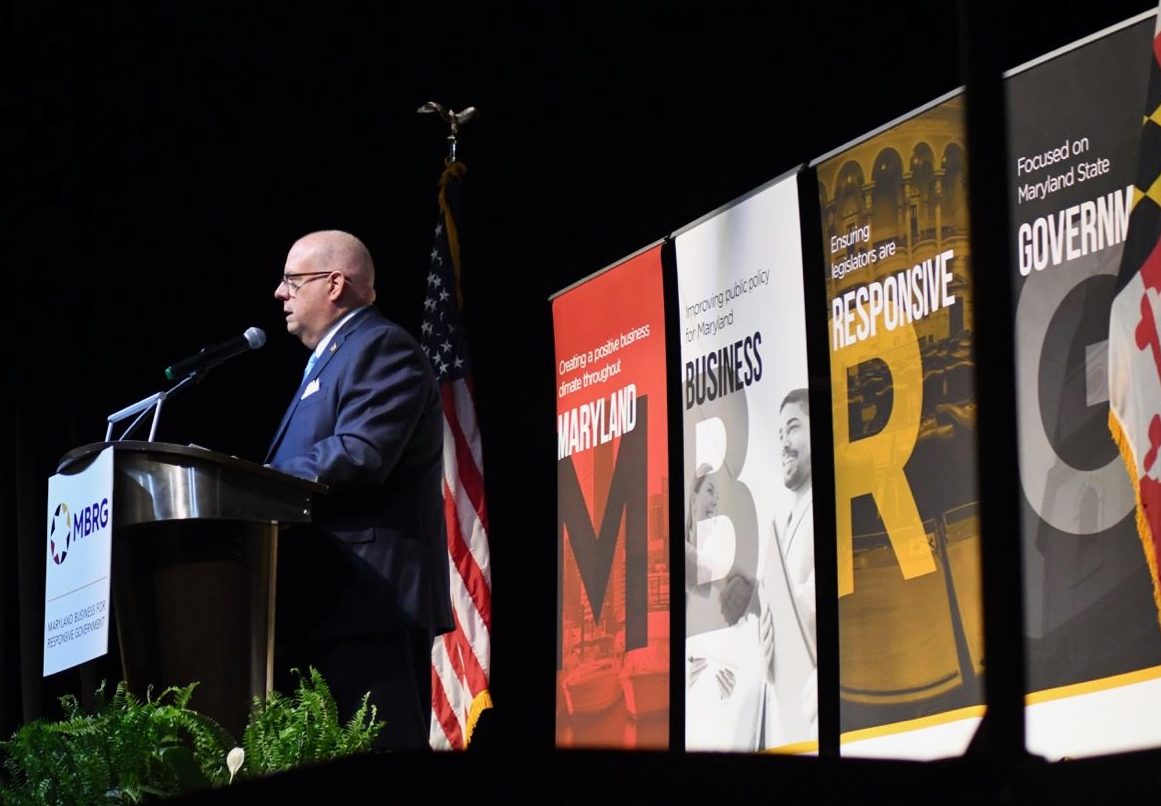Kim Callinan of Compassion & Choices responded to this column on Wednesday, saying “The time is now for End-of-Life Option Act.”
By Michael Collins
For MarylandReporter.com
The introduction again of legislation that would allow people with terminal illnesses to obtain lethal doses of drugs with which to kill themselves has reignited the debate about assisted suicide in Maryland.
The attraction of the “Richard E. Israel and Roger “Pip” Moyer Death End-of-Life Option Act,” HB370 and SB354, is understandable. Who has seen people in the last stages of a terminal illness and not thought, “What can we do to ease their suffering?” Whose heart has not gone out to families whose loved ones endure often intense pain as they die?
I’m sure many people have thought, “If I am ever in that condition, I don’t know how long I’d want to hang on.”
These laws’ advocates often use intensely personal tales, such as that of former Annapolis Alderman Dick Israel, who succumbed to Parkinson’s disease, and, Brittany Maynard, a 29-year-old California woman with terminal brain cancer, who moved to Oregon to take advantage of that state’s assisted-suicide law.
Yet, that the passage of these laws relies so heavily on their raw emotional appeal should make us pause. We need to ask some hard questions about these issues and think just as hard about their potentially ugly answers.
Have we exhausted all options related to palliative care? If there are laws and regulations that onerously restrict physicians from prescribing the painkillers that can alleviate a terminal patient’s suffering, shouldn’t we change them first?
If enacted, this law will establish the principle that people in Maryland have a right to “death with dignity,” as the legislation was called when first introduced two years ago. With that accomplished, what is there to prevent the law from expanding to allow physician-administered suicide?
Slippery slope
In the Netherlands, where euthanasia has been legal since 2002, physicians are helping people with treatable mental illnesses—like depression—commit suicide. And, numerous doctors have become “angels of death,” euthanizing terminally ill patients without their consent.
A 2012 paper by J. Pereira in Current Oncology, found that despite safeguards built into so-called “death with dignity” laws, most safeguards are ignored.
For example, in 2005, more than 540 people in Holland were euthanized without providing explicit consent. In the Flemish part of Belgium, 208 people were euthanized without consent because they were in a coma.
Pereira’s study concluded that in 30 years, the Netherlands has slowly moved from euthanasia for terminal illnesses to euthanasia for psychological distress. That point was driven home last year in a widely reported case where a woman in her 20s—who did not have a terminal illness—was euthanized in Holland. She had been a victim of sexual trauma and her psychiatrist determined that she had untreatable Posttraumatic Stress Disorder.
Lawsuits
Proponents of so-called “death with dignity” argue a patient should have the right to self-administer a lethal dose of prescription drugs. But what about people with disabilities? Such a law is one lawsuit from being an Americans With Disabilities Act (ADA) violation for those who cannot self-administer.
Opponents of capital punishment point to the Hippocratic Oath to keep doctors from assisting in legal executions. They have also attacked drug companies for providing the lethal cocktails for executions. And they have pointed to botched executions as reason to end all executions.
- Would doctors who prescribe lethal doses of drugs be violating their Hippocratic Oath? Could they be subject to professional sanctions?
- Will drug companies have an incentive to create more powerful poisons so a patient does not have to swallow 100 capsules?
- If even medically supervised executions can be botched, what can we assume about patient suicide? If not supervised, what happens? Could a patient be in a permanent vegetative state requiring life support? If supervised, would more active measures be required?
Proponents of such abortion-inducing drugs as Plan-B have sued pharmacists who refuse to dispense abortificients because it violates their conscience. Will pharmacists be liable to lawsuits if they refuse to prescribe life-ending drugs?
Conscience
The introduction of euthanasia will place Maryland’s health-care professionals on a collision course with numerous ethical and moral dilemmas. Anti-capital punishment activists argue that the Hippocratic Oath prohibits doctors from assisting with legal executions. Can it be made to square with euthanasia?
What about those with religious objections? Will a Muslim doctor be able to refuse to write a prescription for lethal drugs based on his religious beliefs? Will a pharmacist who is an evangelical Protestant be able to refuse to fill such a prescription on the same grounds?
Grim efficiency?
In 2008, Barbara Wagner and Randy Stroop were denied further cancer treatments by Oregon’s state-run Medicaid program because their cancers were in advanced stages. They were informed, however, that it would pay for their assisted suicide drugs.
Opponents of Oregon’s assisted suicide have noted potential conflicts of interest between doctors who approve assisted suicide and their employment with health maintenance organizations (HMOs).
Will Maryland’s Medicaid provide suicide drugs? What about insurance policies purchased through Maryland’s health exchange? Will we create a two-tier system where the wealthy with private insurance get their expensive cancer treatment while the poor on Medicaid get offered suicide drugs?
I fear that many of the people now holding out the promise of “death with dignity” are exploiting our compassion, anxieties, and fears in order to move us—incrementally, at first—toward a truly nightmarish future in which human life will be easily and callously disposed of in service to some amorphous “greater good.” Will we soon have ambulatory “dignity” clinics, like the dystopian future presented in the 1970s film “Soylent Green?” Recall how the Edward G. Robinson character “went home,” a euphemism for assisted suicide.
Before we pass the “End-of-Life Option Act” law, we need a debate with dignity, that strips away the euphemisms, asks the hard questions and gets the unvarnished answers.
Michael Collins can be reached at michael.collins.capital@gmail.com.






Excellent points by Mr. Collins about the formerly named Hemlock Society. It is a slippery slope and the Netherlands demonstrates where this will go. There are already proposals under consideration to allow nurse practitioners to administer lethal doses and to shorten waiting time to 48 hours instead of 2 weeks being considered in some jurisdictions.
The following comment was sent by the Rev. Michael Morse of Frederick, MD
My story is yet one more emotional account of a loved one who died without dignity. Unfortunately, in her case, the legislation before the House and Senate in Maryland would not have helped her because she died of Alzheimer’s.
A wife of nearly 56 years, the days and weeks and months of the last three years were lived in a constant state of confusion, bewilderment, sometimes terror. The first seven years of the struggle were not too bad, but as the disease progressed difficulties mounted.
Twenty years before her death, and ten before the onset of her own struggle, her mother died of the same disease, and knowing with some probability that this would be her own fate sooner or later, she pleaded passionately with me to never, never let her go through such an ordeal. Both of us were helpless, however, to prevent what she most dreaded.
I am a retired clergy person with 50 years plus of experience. I have been at the bedsides of many patients through the years, some of whom have literally asked me to help them die with dignity, one of whom requested a bottle of Darvon pills and a bottle of champagne! How about humor in the midst of pain?
She was dying of bone marrow cancer and had wasted away to nearly nothing. In some cases I have been with people when they have taken their last agonizing breath, often with various tubes running in and out of their bodies to keep them needlessly alive and suffering. So I have some deep personal experience concerning dignity, or the lack thereof.
Your plea for dignity in the debate on this issue, Mr. Collins, seeks to eviscerate my experience Your extensive diatribe cuts to the quick, for it suggests everything that is not. Death with dignity is not suicide, nor is it killing. Nearly a dozen times in your article you say it is. Do you intend to taunt or simply inflict pain upon those who sincerely anguish with loved ones who have suffered? That’s what it feels like!
Suicide is the intentional and voluntary ending of a life that would otherwise continue for an indefinite period of time. Death with Dignity legislation in all of the States that have enacted it expressly prohibits suicide, and recognizes, on the other hand, that it is ALWAYS the disease that is taking a life and that death is not only immanent but inevitable.
To suggest otherwise is simply dishonest. Legislation simply gives suffering, dying persons a choice on timing within very limited and clearly defined parameters, and under carefully and legally prescribed conditions, all of which address every last one of your objections and cautionary notes and reveals them to be falsehoods and myths.
There is no “slippery slope” and we are not another country, and the meticulous safeguards written into all of the legislation regarding disabled persons, eliminates any possibility of them being exploited. And the fact of the matter is that in all of the States where this legislation is in effect, there is not a single solitary violation.
Yes, let’s have a debate on the ethical and moral questions of death with dignity. But let it be compassionate without inflammatory, bullying taunts.
And let it be honest, without a re-writing of the English language and the wholesale distortion of fact, making up scenarios out of whole cloth. And, finally let us have a debate that recognizes we are always talking about a CHOICE that people who are being killed by a disease can make about the way in which they relinquish their life to death with dignity. No one is being forced to make that choice.
This article does raise many interesting questions suggesting that maybe the legislature (society) should give some more thought to simply authorizing individuals and the doctors to end life when they “think it’s time”. It was a pleasant surprise.
But the author, who seems sincere enough in the way he’s portrayed it, was careful not to mention, even once, the name of God. The very author of life was not given so much as a passing thought by this writer––who actually did not seem to be at all supportive of pushing a euthanasia bill through the legislature.
With a name like Michael Collins, one could be almost certain (almost) that he was or is a Catholic. If so, one would complain that he was influenced by his parish priest to push against euthanasia. But, of course, that would not be the case at all. “Theoretically” the modern Catholic Church is against euthanasia, but in truth, they rarely say a word to their members about the topic. Oh sure, they send an “opponent” down to the legislature to testify against the bill, but that’s really just pro-forma. The “Church” wants all to know that they “oppose” euthanasia.
But that being said, you can be almost absolutely certain that a Michael Collins (or any other Catholic in the past 50 years) have not heard much if anything against this incredibly serious sin in a Catholic Church. For that reason, many Catholics not only support this bill, the so-called Catholic legislators vote for it. And just so Catholics properly understand their faith, one commits the “sin” (there’s that strange word again) by “supporting”euthanasia as much as they do by taking their own life.
But thank you, Michael for a nice, gentle piece. You didn’t go so far as to “offend” anyone, but yet, you didn’t come out in support of this disgraceful legislation. I’m sure your bishop, your pastor, and even your editor would say you did well. God? Maybe not so much.
This is not about people who are dying anyway.
Amending Colorado’s Prop 106 is sorely needed (and OR,WA,CA). The initiative was bought for $8,000,000 of deception. Even as they proclaimed that the poison must be self administered they did not provide for an ordinary witness. The difference is that without a witness it allows forced euthanasia but with a witness they would up hold individual choice.
Amendments would include requiring a witness to the self administration, restore the illegality of falsifying the death certificate require the posting of the poison applied in the medical record for the sake of good stewardship for future studies, register organ/tissue trafficking, reveal commissions and memorials paid to the corporate facilitators and keep all records for transparent public safety policy.
Bradley Williams
President
MTaas org
There have been news reports about the abuse and coercing of people ( by those who “care” ) into agreeing to euthanasia for depression and other mental illnesses, simply being too old, a “burden”…
The Weimar Republic and the Nazis used euthanasia to get rid of “untermenschen”, “useless bread munchers/eaters”, undesirables, the elderly, dementia and Alzheimer’s sufferers, etc.
And do you know what the means of carrying it out are ? Dehydration and starvation !
Those who choose this for their “lived one” should share the experience…
My wife works in assisted living facilities for Alzheimer’s and dementia patients and the patients definitely know when they are thirsty and hungry !
And this could be the “advocates” future if they should become such…
We are becoming more depraved every day…
There’s nothing “dignified” about this evil…
Anyone with religious exceptions does not need to participate in utilizing the proposed law. We have separation of church and state for this reason. It does not work the other way around. Your religious beliefs should not impact my government. On another note… if this slippery slope toward euthanasia is so threatening, why hasn’t it already started to take place in any form in the states where DWD laws are enacted? It’s because the laws, as they are written prevent this by intention.
I’m curious as to why the author chose to focus on euthanasia in the Netherlands, when Oregon’s own Death with Dignity Act was enacted even earlier, in 1997. Had Mr. Collins chosen to examine the law in my former home state, he would have found answers to many of the questions that he posed here.
For example, after two physicians independently determine that a person has less than 6 months to live if their illness follows its usual course (the same determination that qualifies that person for hospice), Oregonians who want to take advantage of the Death with Dignity Act must request a lethal prescription on two separate occasions at least two weeks apart. These requests must be made while the patient has full decision-making capacity and ability to communicate and self-administer, must be witnessed by two people who are not part of the medical care team, and at least one of these witnesses must not be a beneficiary of that patient’s will. Once those requests have been made, no doctor is obligated to write or co-sign the prescription, and in fact, some people have to travel within the state to find a doctor willing to prescribe these medicines.
Randy Stroup and Barbara Wagner’s cases brought up an important, but somewhat distinct question: how generous is our state willing to be with the poor? My father’s chemotherapy for the metastatic prostate cancer (the same disease that killed Randy Stroup) cost over $60,000 for 4 weeks, and it also didn’t extend his life. My father made his decision about treatment without concern for the cost because of his excellent insurance, but people like Mr. Stroup are denied treatment throughout the country not because physician-assisted suicide is legal, but because of the enormous costs associated with treating metastatic cancer. How much should state-run insurance be willing to pay to give someone an extra shot at a little more time on this Earth? As Mr. Collins rightly said “we need to ask some hard questions about these issues and think just as hard about their potentially ugly answers.”
Excellent article that raises a lot of issues that need to be explored.